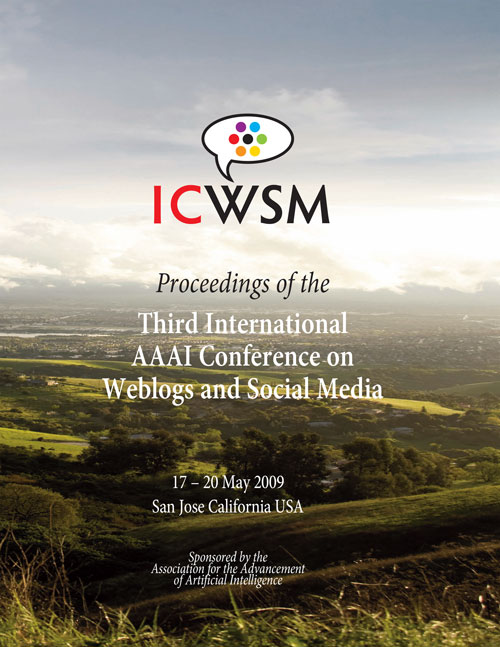Trust Incident Account Model: Preliminary Indicators for Trust Rhetoric and Trust or Distrust in Blogs
DOI:
https://doi.org/10.1609/icwsm.v3i1.13990Keywords:
trust, distrust, trust rhetoric, blog analysis, opinion-mining, sentiment analysis, information extraction, natural language processingAbstract
This paper defines a concept of trust incident accounts as verbal reports of empirical episodes in which a trustor has reached a state of positive or negative expectations of a trustee’s behavior under associated risks. Such expectations are equated to trust and distrust, correspondingly, and present a sharp contrast with hypocritical use of trust rhetoric with ulterior motives such as an attempt to manipulate readers or gain trustworthiness. Distinguishing the three: trust, distrust, and trust rhetoric, is formulated as a new challenge in sentiment analysis and opinion-mining. Based on a preliminary exploration of trust narratives in blogs, 14 categories of textual indicators were identified manually. The finer-grain analytical model of trust incident accounts is proposed to include 12 information extraction frame components: trustor, trustee, source, textual clue, trust valence, risks, reasons, actions, trustor-trustee relationship, narrow context, broad domain, and complements. The study draws a cross-disciplinary theoretical bridge from social science and information technology trust literature to opinion-mining, and emphasizes the value of understanding trust in longer-term social relations.

